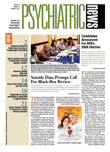Federal government programs to screen and monitor people who responded to the World Trade Center attacks have been interrupted by bureaucratic delays and limited by the responders' employers and geography, said a senior Government Accountability Office (GAO) official in September.
“Federal responders have been eligible only for the initial screening examination provided through the WTC [World Trade Center] Federal Responder Screening Program,” Cynthia Bascetta, a director of health care for the GAO, told a congressional hearing in New York by the House Government Reform Subcommittee on Management, Organization, and Procurement. “In addition, many responders who reside outside the [New York] metropolitan area have not been able to obtain screening and monitoring services because available services are too distant.”
For instance, the U.S. Department of Health and Human Services (HHS) program stopped scheduling any specialty diagnostic screening services from April 2006 to March 2007, and screening examinations from January 2007 to May 2007. Also, the National Institute for Occupational Health and Safety has taken some steps toward including monitoring and making services available outside the New York City area, but these have not been fully implemented.
Furthermore, HHS, which funds and coordinates the screening and monitoring programs, has not provided a satisfactory explanation for the stop-and-start service pattern, Bascetta told Psychiatric News in a later interview.
“The pattern has been going on even since we started looking at the situation,” said Bascetta. “It's really inexcusable.”
That lack of consistent follow-up raised concerns about whether recent efforts to extend screening and monitoring services will be either successful or sustained, she said. Continuing the programs would produce long-term medical information to aid diagnosis and treatment of affected responders. Failure to evaluate these workers now could also break the connection between the effects of their presence at the World Trade Center site during or after the attacks and future related health effects.
Federal funds for mental health services have been doled out just as erratically, said Spencer Eth, M.D., vice chair of psychiatry and medical director for behavioral health services at St. Vincent Catholic Medical Center and a professor of psychiatry at New York Medical College, in a later interview. Eth also testified at the hearing. St. Vincent's is the hospital closest to the World Trade Center site and began evaluating and treating survivors of the attack and responders early in 2002.
Funds for that work came initially from the Federal Emergency Management Agency (FEMA) and the Substance Abuse and Mental Health Services Administration (SAMHSA). However, FEMA funds could be used only for crisis counseling, not psychotherapy or psychotropic medications. Federal funding was directed to other hospitals in Manhattan, one of which, Mt. Sinai Medical Center, came under fire after a New York Times article reported criticism of how it collected and reported data on the recovery workers it treated and tracked. Both FEMA and SAMHSA funding to St. Vincent's ended two years ago, said Eth, although mental health services have continued with financial help from the Red Cross and private foundations.
Questions from subcommittee members implied that some individuals treated for the psychiatric aftereffects of the attacks were malingering, Eth told Psychiatric News. Such an assumption “only contributes to the stigma surrounding people who have real psychiatric problems and delays them coming in for care,” he said.
Those delays could cause symptoms to become chronic and harder to treat, so programs are needed to provide long-term care and monitoring.
New York City's Department of Health and Mental Hygiene set up a registry of more than 71,000 persons who worked at, lived near, or were otherwise close to the site during and after the attacks, testified Lorna Thorpe, Ph.D., deputy commissioner in the department's Division of Epidemiology. Two published reports are based on those data, one on the higher rates of asthma among some site workers and one on posttraumatic stress disorder. The latter report appeared in the September American Journal of Psychiatry (Psychiatric News, September 7).
A second survey by the New York health department now under way “will help determine whether respiratory and mental health conditions have persisted six years after the disaster and whether any new symptoms or conditions have emerged,” Thorpe said at the hearing. “An important goal for the follow-up survey is to identify and help address gaps in medical and mental health treatment.”
A bipartisan group of New York congressional representatives said they would introduce a bill to assure medical monitoring and treatment of anyone exposed to toxins from the World Trade Center site, including area residents, workers, school children, and others, regardless of where they lived. The proposed legislation would also define “centers of excellence” that monitor or treat patients and would reopen the September 11 Victim Compensation Fund to cover economic damages for persons who did not file by the December 22, 2003 deadline.
The GAO recommended in July that health screening and monitoring services should be available to all people who responded to the attacks, but hadn't received a reply to the proposal from HHS by early September.
“The subcommittee has tried to hold HHS accountable, but it's difficult to do if the agency doesn't respond,” said Bascetta.
The GAO report is posted at<www.gao.gov/cgi-bin/getrpt?GAO-07-1229T>.▪
